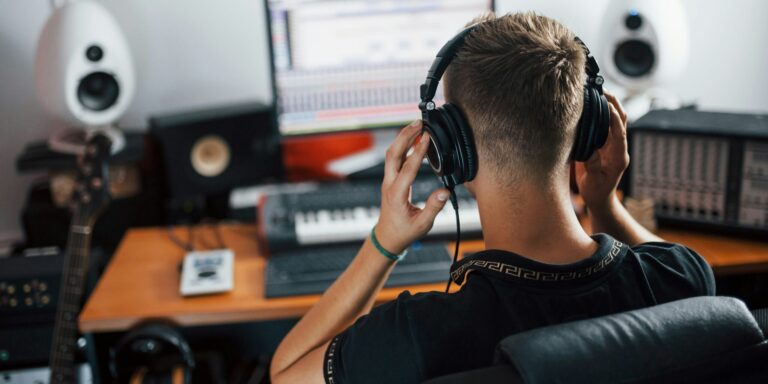The rise of artificial intelligence (AI) in the music industry is ushering in both excitement and apprehension, sparking a heated debate among musicians, producers, and music enthusiasts. While some embrace AI for its potential to enhance creativity and streamline production, others express concern over its impact on artistry and authenticity in music. As AI-driven tools become increasingly integrated into the music-making process, the question arises: Is AI a blessing that will elevate the industry, or a curse that could undermine the very essence of music?
In recent years, AI has made significant strides in music production. AI-powered programs, such as music composition software, sound design tools, and mastering services, are now commonplace in the industry. These tools allow producers and musicians to generate melodies, mix tracks, and even create entire compositions with minimal input from humans. For independent artists, many of whom lack the resources to hire professional producers, AI offers a cost-effective solution that can elevate their work to a professional level. The convenience and accessibility of AI tools have democratized music production, enabling more people to create music that sounds polished and sophisticated.
AI’s ability to innovate is also making waves in the creative aspects of music production. Tools like Google’s Magenta project, which uses machine learning to generate melodies and harmonies, and software that mimics the styles of famous composers, have opened up new possibilities for experimentation. Music producers are now able to explore unique sound combinations, styles, and genres that may have been difficult or even impossible to conceive without the help of AI. The potential for AI to serve as a creative partner is reshaping the way music is produced, allowing for more exploration and innovation than ever before.
However, the increasing prevalence of AI in music production has led to concerns about the role of human musicianship. As AI technology becomes more advanced, some worry that it could begin to overshadow human creativity, ultimately replacing the emotional depth and personal touch that musicians pour into their work. Can a machine truly understand the nuances of human emotion that give music its power and significance? Critics argue that AI-driven compositions, while technically proficient, lack the soul and authenticity that define the best music.
This fear of AI replacing human musicians is not unfounded. In some cases, AI has already been used to generate entire albums and even replicate the styles of iconic musicians. For example, AI-generated music has appeared on streaming platforms, sometimes even receiving millions of listens. As these technologies continue to evolve, it becomes increasingly difficult to distinguish between human-created and AI-generated music. Some artists worry that this blurring of lines will lead to the devaluation of live performances, which have always been seen as an irreplaceable aspect of the music experience.
In addition to questions about creativity, there are concerns about the potential for AI to disrupt the business of music. If AI-generated music becomes more commonplace, what will this mean for professional musicians, producers, and other industry professionals? The democratization of music production, while offering opportunities to independent artists, could also flood the market with music, leading to oversaturation and making it harder for human musicians to stand out. The ability of AI to produce music at an unprecedented rate could result in a scenario where the value of music, both as an art form and as a commodity, diminishes.
Despite these concerns, many industry insiders argue that AI will not replace human musicians, but rather will serve as a tool that enhances their work. AI, when used properly, has the potential to empower musicians by providing them with new ways to express their creativity and experiment with sounds and techniques. Some musicians see AI as a collaborator rather than a competitor, and they believe that the technology can complement their work without overshadowing their artistry. “AI is just another tool in the toolbox,” says producer Mark Ronson. “It’s not here to replace anyone, but to enhance the possibilities.”
The key question, however, remains how AI will be integrated into the future of music production. Rather than viewing AI as a threat, many believe that the focus should be on how to use these technologies responsibly. Musicians and producers alike must find ways to ensure that AI complements the human touch, rather than replacing it. The future of music production may not be about choosing between AI and human creativity, but about finding a harmonious balance between the two.
In conclusion, AI’s growing influence on the music industry presents both exciting possibilities and serious concerns. While it undoubtedly offers new opportunities for innovation and accessibility, it also raises fundamental questions about the value of human creativity and the authenticity of the music we listen to. The challenge going forward will be to find ways to incorporate AI into music production without losing sight of the soul and emotion that make music truly resonate with audiences.


